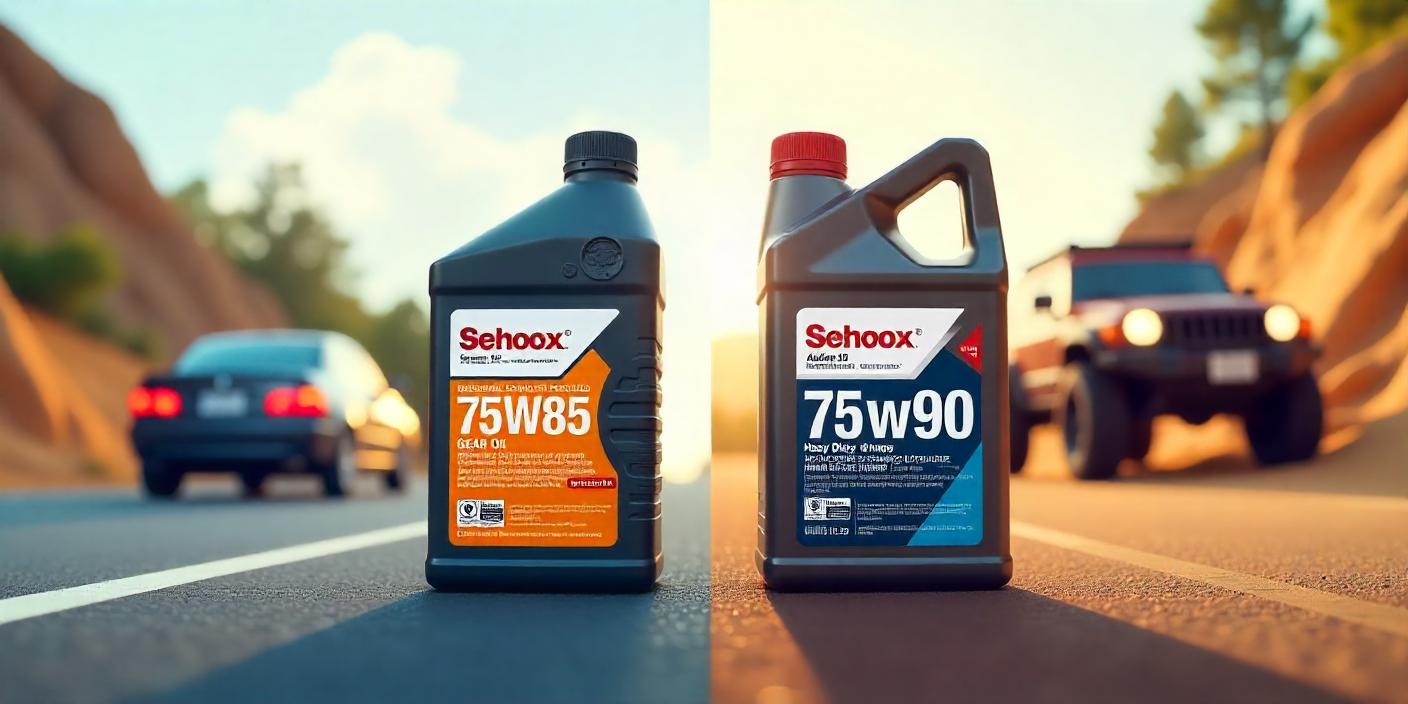75W85 and 75W90 gear oils differ primarily in their high-temperature viscosity, with 75W85 being thinner and offering better fuel efficiency, while 75W90 provides enhanced protection in high-stress and high-temperature conditions. Both oils share the same low-temperature performance, making them equally suitable for cold climates.
Choosing the right gear oil depends on your vehicle’s specifications, driving conditions, and requirements, such as towing or everyday driving. For standard use, 75W85 may be sufficient, but for heavy-duty or extreme environments, 75W90 is a better choice.
Always refer to your vehicle’s owner’s manual to ensure compatibility and avoid potential damage. Selecting the appropriate gear oil helps maintain optimal performance and extends the life of your vehicle’s transmission and differential systems. If in doubt, consult a trusted mechanic for guidance.
In this article, we’ll explore what these oils are, their key differences, and when to use each. By the end, you’ll have a clear understanding of how to choose the best option for your vehicle.
What Do 75W85 and 75W90 Mean?
The numbers in 75W85 and 75W90 represent the oil’s viscosity rating as per the SAE (Society of Automotive Engineers) standards:
- 75W: The “W” stands for winter, indicating the oil’s flow characteristics at low temperatures. Both oils have the same low-temperature performance.
- 85 or 90: The second number indicates the oil’s viscosity at high operating temperatures. Here, 90 is thicker than 85.
In simpler terms, 75W85 is slightly less viscous (thinner) at high temperatures compared to 75W90. This difference impacts performance under certain conditions, as we’ll discuss further.
Key Differences Between 75W85 and 75W90 Gear Oil
1. Viscosity at Operating Temperatures
- 75W85: Thinner at high temperatures, offering better fuel efficiency and smoother operation in moderate climates.
- 75W90: Thicker at high temperatures, providing enhanced protection for gears under extreme heat and heavy loads.
2. Load-Carrying Capacity
- 75W85: Suitable for lighter loads and less demanding conditions. Ideal for everyday driving and vehicles with standard gear systems.
- 75W90: Designed to handle heavy loads and high-pressure environments, making it better for towing, off-road driving, and high-performance vehicles.
3. Fuel Efficiency
- 75W85: Due to its lower viscosity, it reduces drag in the gear system, which can improve fuel efficiency.
- 75W90: Offers slightly less fuel efficiency but compensates with greater durability under stress.
4. Temperature Tolerance
- 75W85: Performs well in moderate temperature ranges but may not offer the same protection in extremely hot conditions.
- 75W90: Excels in high-temperature environments, ensuring gear protection even under intense heat.
When Should You Use 75W85 or 75W90?
Opt for 75W85 if:
- You drive in moderate climates with consistent temperatures.
- Your vehicle operates under normal conditions without heavy loads or extreme stress.
- Fuel efficiency and smoother gear operation are priorities.
Choose 75W90 if:
- You frequently tow heavy loads or drive off-road.
- Your vehicle operates in extreme temperatures or high-stress conditions.
- Longevity and protection of your gears are more important than marginal fuel efficiency gains.
Compatibility with Vehicle Specifications
Always consult your vehicle’s owner’s manual to determine the recommended gear oil. Automakers specify viscosity grades and additives required for optimal performance. Using oil that doesn’t meet these specifications can compromise performance and void warranties.
Additives and Formulations
Both 75W85 and 75W90 oils are often fortified with additives such as:
- Anti-wear agents: Reduce gear wear under pressure.
- Rust inhibitors: Protect metal components from corrosion.
- Friction modifiers: Ensure smooth operation and reduce noise.
The specific additives in each oil may vary by brand, so check the product label to ensure compatibility with your vehicle.
Cost Comparison
Generally, 75W85 tends to be slightly more affordable than 75W90. However, the price difference may vary depending on the brand and formulation. While cost is a factor, it’s crucial to prioritize your vehicle’s needs over savings.
FAQs About 75W85 vs. 75W90 Gear Oil
Here are 10 frequently asked questions to clarify the differences and help you choose the right gear oil for your vehicle:
1. What is the main difference between 75W85 and 75W90 gear oil?
The primary difference lies in their viscosity at high temperatures. 75W85 is thinner and offers smoother operation and better fuel efficiency, while 75W90 is thicker and provides superior protection in high-stress or high-temperature conditions.
2. Can I use 75W90 instead of 75W85 in my vehicle?
In most cases, yes, but it depends on your vehicle manufacturer’s specifications. While 75W90 offers greater protection, using it in place of 75W85 may not optimize performance in vehicles designed for thinner oils.
3. Which gear oil is better for cold climates?
Both 75W85 and 75W90 have the same winter viscosity rating (75W), meaning they perform equally well in low temperatures. The difference lies in their high-temperature performance.
4. Is 75W85 more fuel-efficient than 75W90?
Yes, 75W85 generally reduces drag in the gear system due to its lower high-temperature viscosity, resulting in slightly better fuel efficiency compared to 75W90.
5. Can I mix 75W85 and 75W90 gear oils?
Mixing is not recommended as it may dilute the effectiveness of additives and alter the viscosity balance. Always use the same type of gear oil specified for your vehicle.
6. Is 75W90 suitable for heavy-duty applications?
Yes, 75W90 is better suited for heavy-duty applications like towing, off-road driving, or high-performance vehicles due to its thicker viscosity and higher load-carrying capacity.
7. Does 75W85 work well in high-temperature conditions?
75W85 performs adequately in moderate heat but may not provide the same level of protection as 75W90 in extreme temperatures or under heavy loads.
8. Which is more expensive: 75W85 or 75W90?
75W90 gear oil is generally more expensive due to its thicker viscosity and added durability. However, the price difference is usually minor and depends on the brand and formulation.
9. How do I know which gear oil is right for my vehicle?
Refer to your vehicle’s owner’s manual for the recommended viscosity grade and specifications. If unsure, consult a mechanic or contact your vehicle’s manufacturer for guidance.
10. Can using the wrong gear oil damage my vehicle?
Yes, using gear oil that doesn’t meet your vehicle’s specifications can lead to poor performance, increased wear, and even damage to the transmission or differential components. Always use the recommended oil.
Final Thoughts
The choice between 75W85 and 75W90 gear oil ultimately depends on your vehicle’s specifications, driving conditions, and personal preferences. If you drive under standard conditions and prioritize fuel efficiency, 75W85 may be the better option. On the other hand, if you face high-stress scenarios, such as towing or extreme heat, 75W90 offers superior protection and durability.
For the best results, always follow your vehicle manufacturer’s recommendations and consult a trusted mechanic if you’re unsure. Selecting the right gear oil not only ensures smoother operation but also extends the life of your transmission and differential systems.

